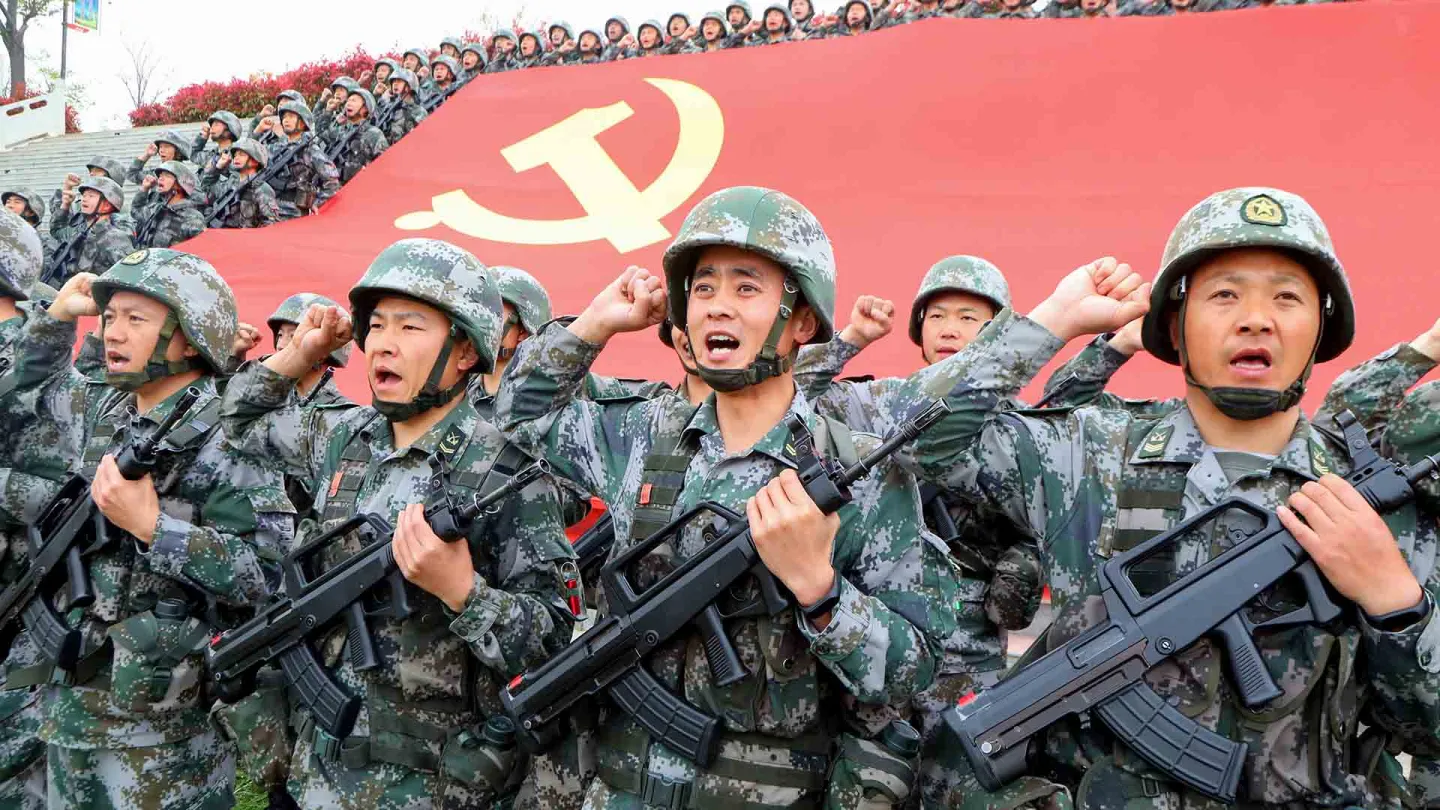As the military registration season approaches, the Chinese government has been heavily promoting mandatory registration, declaring that all 18-year-olds must complete the process and warning of severe consequences for non-compliance.
This has sparked widespread speculation. Experts suggest that this push may not necessarily indicate preparation for war but rather stems from fears of potential large-scale social unrest, prompting the Chinese Communist Party (CCP) to strengthen its control measures.
The 2025 military registration will begin on January 1st, 2025. According to China’s military service law, male citizens who turn 18 by December 31st of that year are required to fulfil their military registration obligations as stipulated by law.
Notably, what was previously a recommendation (“should register”) has now become mandatory (“must register”) for military service upon turning 18.
Propaganda videos titled “The Nation Calls Your Register at 18” have been widely shared, while official platforms such as the Veterans Affairs Office’s Weibo account have warned that failing to register could have serious repercussions, such as being barred from attending university or finding employment.
Political analyst Tang Jingyuan echoed these sentiments, suggesting the registration drive might be a contingency for internal unrest rather than outright war.
Local governments have issued announcements emphasizing severe penalties for refusing to fulfil national defence obligations or evading military service.
Non-compliance may result in disqualification from public service and state-owned enterprise recruitment, ineligibility to travel abroad, graduate, or enrol in higher education institutions, denial of essential services such as identity cards, household registration, driver’s licenses, and bank loans, restrictions on purchasing flight or high-speed rail tickets, and loss of access to social welfare benefits.
Moreover, personal records will note the refusal to register, and this will be flagged in one’s household registration information.
Online comments reflect widespread scepticism. “If it’s such an honourable thing, why attach so many conditions?” one netizen asked.
“With the birth rate so low, will compulsory military service become inevitable in the future?” This sentiment reveals underlying concerns and speculations about the government’s motivations. Some netizens recalled the past when enlisting required connections and money.
“Back in college, I handled class registrations for military service. After registering, nothing happened. You wanted to join, but they didn’t necessarily want you. It used to be voluntary; now it’s mandatory,” one commenter noted.
Zhang He, a retired Air Force veteran, suggested that the government’s actions might be an attempt to create tension and justify stricter control over the public.
“If war were to break out, China’s outdated equipment and human wave tactics would lead to devastating losses,” Zhang said. He also noted growing discontent within the military and broader society.
“Young people today are unwilling to endure hardship. Soldiers and officers alike are dissatisfied. They dream of a better life, but times are worsening,” he added.
Zhang criticized the government’s focus on young men for military service while female soldiers largely serve privileged interests.
In poor northern regions, joining the military is often seen as a way out, whereas wealthier areas in southern China are less inclined to enlist.
Zhang referenced past tragedies, like the 2019 Sichuan wildfires, where over 30 firefighters died.
Quoting Nobel Laureate Aung San Suu Kyi, he said, “The fields are strung with corpses, all sons of farmers.”
He warned young people against becoming pawns of the regime. “Some sacrifices are meaningful; others are not. If you’re invading others, you’re just cannon fodder for a dictatorship. If the CCP attacks Taiwan, many of my friends will support Taiwan.”
Political commentator Lan Yu said that the increasingly strict military registration requirements indicate the government’s growing reliance on its military to maintain control amid mounting societal and internal pressures.
“If Xi Jinping continues his leftward ideological shift, military control could become the CCP’s final option,” Lan said.
He predicted that this might involve declaring a state of emergency, justifying military governance with external conflicts such as provocations in the Taiwan Strait or assaults on offshore islands like Kinmen or Matsu. Lan predicted that such moves would require rapid military expansion and mobilization.
The stringent measures and severe penalties for non-compliance indicate the government’s determination to maintain a tight grip on its population.
Measures like reinstating collective supply systems and arming grassroots militia units are precursors to such preparations.
Political analyst Tang Jingyuan echoed these sentiments, suggesting the registration drive might be a contingency for internal unrest rather than outright war.
“It’s akin to a census identifying individuals eligible for military service to prepare for potential emergencies, whether external conflicts or internal upheavals requiring large-scale stabilization forces,” Tang explained.
He highlighted the government’s rhetoric about a “once-in-a-century transformation,” hinting at its anticipation of dramatic and possibly destabilizing events.
The CCP’s enforcement of mandatory military registration amid fears of major upheaval reflects broader concerns about social stability and control.
The stringent measures and severe penalties for non-compliance indicate the government’s determination to maintain a tight grip on its population.
As societal pressures mount, the role of the military in ensuring regime stability appears increasingly critical.
The implications of this policy will likely continue to unfold, shedding light on China’s broader strategic objectives and domestic challenges.









Comment